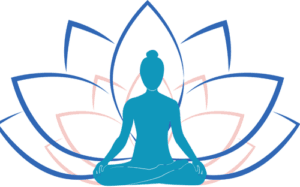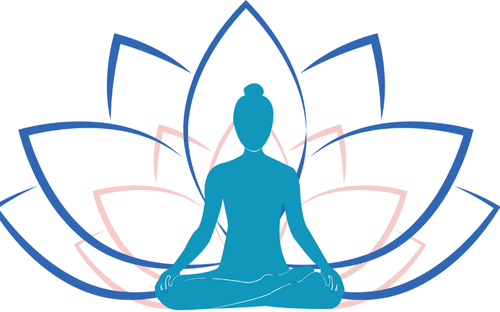The Importance of Morning Yoga for Mental Clarity
Incorporating yoga into your morning routine can yield profound benefits for mental clarity and focus. This practice fosters a unique mind-body connection that is essential for enhancing cognitive functions and promoting overall well-being. Through a series of mindful movements and breath control, morning yoga helps to alleviate stress and anxiety, two common barriers that inhibit clear thinking and concentration.
The physiological effects of yoga are evidenced through increased blood flow and oxygen delivery to the brain, which can significantly improve cognitive performance. As individuals engage in various asanas, the activation of the parasympathetic nervous system promotes relaxation, reducing the production of cortisol, the stress hormone. Lower stress levels not only clear the mind but also facilitate better decision-making and problem-solving abilities.
Furthermore, morning yoga encourages the practice of mindfulness, which plays a crucial role in mental clarity. By focusing on the present moment and cultivating awareness through breathing techniques, individuals learn to hone their attention, allowing for improved concentration throughout the day. This proactive approach to mental health leads to a more organized thought process and an enhanced ability to tackle daily challenges with a calm and focused mindset.
Establishing a consistent morning yoga routine supports not only mental clarity but also emotional resilience. The time spent on the mat serves as a dedicated space to reflect and set intentions for the day, creating a strong foundation for mental alertness. With regular practice, individuals may notice a marked difference in their ability to think clearly, manage stress, and stay focused on their goals. Therefore, integrating morning yoga into one’s daily regimen is an effective step towards fostering mental clarity, enabling an individual to navigate the complexities of daily life with ease and confidence.
Developing Your Structured Morning Yoga Routine
Creating a personalized morning yoga routine designed to enhance mental clarity is a rewarding endeavor that can be tailored to suit individual needs. Start by incorporating gentle stretches as a foundational element, which will awaken the body and prepare it for the yoga practice ahead. Spend approximately 10 minutes on these initial stretches, focusing on areas such as the spine, shoulders, and hamstrings to promote flexibility and relaxation. Simple movements like Cat-Cow and Downward Facing Dog can greatly enhance physical comfort and mental readiness.
Following your gentle stretches, introduce standing poses that cultivate strength and stability. Poses such as Warrior I, Warrior II, and Tree pose not only develop muscular strength but also encourage a sense of grounding which is crucial for maintaining focus throughout the day. Aim to hold each standing pose for about 30 seconds, transitioning smoothly between them to allow for a seamless flow. As these positions help build both physical and mental resilience, practitioners of all levels will find them beneficial.
Incorporating breathwork techniques into your morning routine is essential for energizing the mind and sharpening concentration. Techniques like kapalabhati, or “skull shining breath,” can invigorate your mental acuity. Dedicate around 5 minutes to practice this technique within your morning session, focusing on active exhalation and passive inhalation, which promotes increased energy flow. To facilitate accessibility, gradually build your practice by increasing the duration of each segment over time, ensuring you remain attuned to your body’s responses and comfort levels.
Ultimately, the goal of this structured morning yoga routine is to foster a sense of mental clarity and stability. Take the time to assess what combination works best for you, thereby creating a sustainable practice that can enhance both your physical and cognitive well-being.
Key Yoga Poses and Breathwork Techniques
Incorporating specific yoga poses and breathwork techniques into your morning routine can significantly enhance mental clarity and focus. Here, we explore a selection of effective poses along with detailed instructions and their benefits.
One of the foundational poses is Mountain Pose (Tadasana). To perform this pose, stand tall with your feet together, grounding your weight evenly on both feet. Arms should be at your sides, palms facing forward. Engage your thighs, lift your chest, and relax your shoulders. Hold this position for several breaths, focusing on your alignment. Mountain Pose fosters grounding and stability while enhancing awareness, alleviating feelings of brain fog.
Next, Forward Bend (Uttanasana) can energize the body and calm the mind. To execute this, stand tall and hinge from your hips while exhaling; allow your upper body to fold forward, reaching for your feet or ankles. Keep a slight bend in your knees to prevent strain. This pose increases blood flow to the brain and aids in relieving stress, promoting clarity.
Seated Forward Bend (Paschimottanasana) is also valuable for focus. Begin seated with legs extended straight in front of you. Inhale, lengthening your spine, and as you exhale, hinge forward at the hips to reach for your feet, maintaining a straight back. This pose calms the mind while stimulating the nervous system, preparing you for a productive day.
In addition to these poses, Kapalabhati Breath is a powerful breathwork technique that enhances mental acuity. To practice, sit comfortably with a straight spine. Inhale deeply through your nose, then exhale forcefully through your nose while contracting your abdominal muscles. Continue with this rhythmic pattern for 30 seconds, followed by normal breathing. This technique clears the mind and invigorates the entire system, making it a perfect addition to any morning routine focused on enhancing clarity and concentration.
Establishing a Consistent Practice and Overcoming Challenges
Establishing a consistent morning yoga practice is essential for enhancing mental clarity and focus. Regularity not only helps in solidifying the habit but also fosters a deeper connection with the practice itself. To cultivate a structured routine, aspiring practitioners should select a specific time to engage in yoga. This time should align with their daily schedule, ensuring that yoga becomes a non-negotiable part of their mornings. Additionally, creating a dedicated space for practice can psychologically signal the mind to prepare for focused activity.
However, individuals may encounter challenges that can impede consistency. Common hurdles include time management issues, unforeseen commitments, or fluctuating motivation levels. To tackle these obstacles, practitioners might consider setting realistic goals regarding the duration and frequency of their yoga sessions. Even short, 10 to 15-minute practices can yield substantial benefits if performed consistently. By breaking down the overall routine into manageable segments, participants can accommodate their busy schedules while maintaining a commitment to personal growth.
Another effective strategy is to establish a yoga buddy system. Pairing up with a friend or joining a community group can bolster motivation and accountability. Sharing experiences and progressing together helps to keep enthusiasm alive, lessening the likelihood of waning interest. Additionally, tracking progress – whether it is through journaling thoughts and feelings before and after sessions or simply noting improvements in flexibility and focus – can further inspire commitment. Visual reminders, such as motivational quotes or images in one’s yoga space, serve to reinforce the reasons behind practicing yoga.
Ultimately, with consistency, a supportive environment, and practical strategies for overcoming obstacles, anyone can foster a lasting morning yoga routine that enhances mental clarity and focus. Following these suggestions will help ensure that yoga remains a sustainable and rewarding practice.



